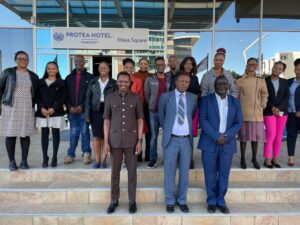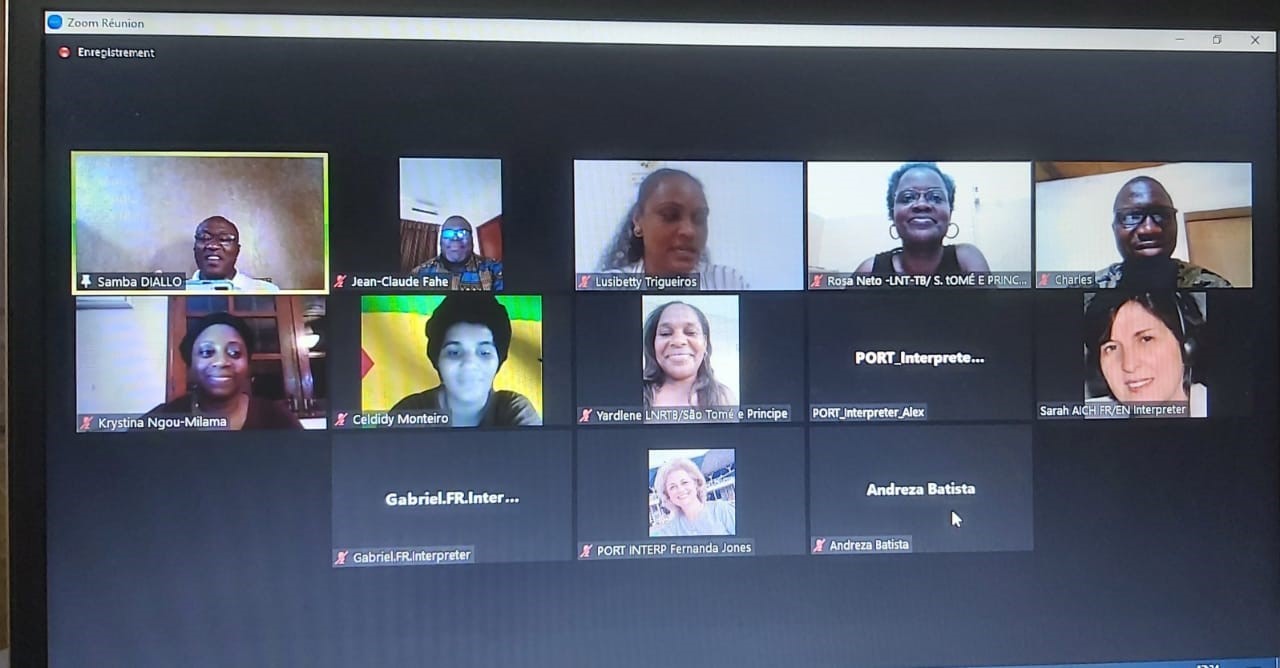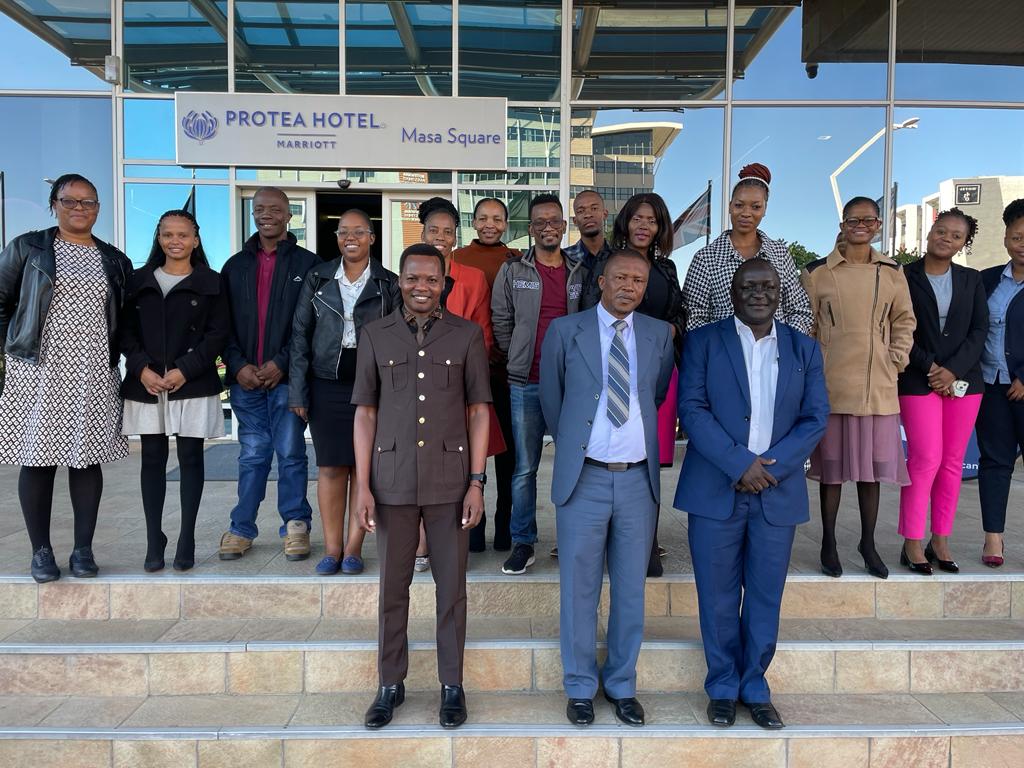Botswana and Sao Tomé and Principle are the latest countries to join the Laboratory Systems Strengthening Community of Practice (LabCoP). Their addition brings the total number of participating countries to 22.
Botswana brings to LabCoP its experience as one of the first African countries to surpass the 2030 UNAIDS 95:95:95 goals on HIV. Led by Ms Thongbotho Mphoyakgosi, laboratory scientist at the National Health Laboratory, the Botswana team consists of laboratory heads from the national and regional HIV and tuberculosis (TB) reference laboratories and representatives of implementing partners including the United States Centers for Disease Control and Prevention, USAID, and others.
The LabCoP Core Technical Team, comprising Dr Collins Otieno, Project Lead, and Mr Francis Ocen, Project Officer, travelled to Gaborone in June 2023 to onboard the Botswana LabCoP team and facilitate a baseline assessment of their viral load (VL) testing cascade. The assessment aimed to identify strengths and weaknesses of the underlying laboratory system components. The results are being used to monitor degrees of improvement and/or continued challenges for these laboratory systems over time.
The meeting was graced by the attendance of Mr Mbulawa Mpaphi, Director of Laboratory Services, who highlighted the importance of sharing experiences to advance systems strengthening efforts. Moving forward, the Botswana team will expand their team membership to include other relevant stakeholders from the TB program and civil society in line with the expanded scope of LabCoP.

LabCoP also welcomed Sao Tomé and Principe, the first Portuguese-speaking country to become a member, in February 2023 with the signing of Terms of Reference with the country’s Ministry of Health and the establishment of a multidisciplinary national team. This marked the country’s official commitment to LabCoP, and on March 13, the Sao Tomé and Principe national LabCoP team held an online introductory meeting marking the second step in the LabCoP initiation process. The Sao Tomé and Principe team include key actors in the country’s laboratory system, managers of its TB and HIV programmes, clinicians and civil society members (representing associations of people living with HIV). It is headed by Dr Rosa Maria Neto Rodrigues. The LabCoP Core Technical Team attended the meeting included Dr Samba Diallo, LabCoP Coordinator for Francophone Countries, Charles Ki-Zerbo, Project Officer, and Dr Krystina Mengue, Diagnostic Network Optimisation Project Manager.
The aim of the meeting was to present the LabCoP project, its objectives, working methods and tools, communication channels and the laboratory system and network in place in Sao Tomé and Principe. This first meeting between the two parties enabled them to understand the organization of the laboratory system in the country, as well as its strengths and main challenges.
The next step will be to conduct a self-assessment, supported by a team of ASLM experts, using a structured tool that will cover the different areas of the laboratory system. The team will help to identify evidence-based gaps and propose a work plan to address challenges and strengthen the country’s laboratory system.


